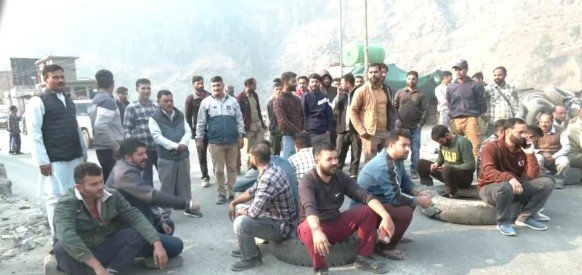Peace Returns to Doda, No New Protests Emerge
Authorities maintain heightened security and prohibitory orders in Doda after violent protests over AAP MLA Mehraj Malik’s PSA detention
Doda, Sep 12: An uneasy calm prevailed in Doda district of Jammu and Kashmir on Friday, a day after violent protests erupted over the arrest of Aam Aadmi Party (AAP) MLA Mehraj Din Malik under the stringent Public Safety Act (PSA). Authorities have maintained prohibitory orders for the fourth consecutive day, and mobile internet and Wi-Fi services remain suspended in Doda and Bhalessa towns.
Following Malik’s detention, which the administration attributed to “provocative speeches and abusive language” on social media, several protesters were arrested during clashes on Monday and Wednesday. Security has been significantly reinforced, with patrols, concertina wires near government offices, and intensified deployment in Doda, Bhaderwah, Gandoh, and Thathri.
TravelDIG Shridhar Patil said the situation is largely under control, adding that peace committees had engaged local residents to restore normalcy. “Efforts are ongoing to bring complete normalcy, and we thank the people of Doda for their cooperation,” he said. Around 40 citizens participated in the discussions, while 60-70 protesters were detained and many later released on bonds. No casualties were reported.
Despite the calm, the district administration has closed schools until Sunday, and most business establishments remain shut. Security measures have been heightened ahead of Friday prayers, and police have urged residents to stay indoors.
Malik’s family has appealed for his release, with his father, Shamas Din Malik, meeting Chief Minister Omar Abdullah to seek intervention. The AAP has accused the Central Government of political targeting, while PDP chief Mehbooba Mufti criticized the administration’s handling of the unrest, citing the internet blackout and curfew as troubling measures.
This incident marks the first time a sitting MLA in Jammu and Kashmir has been detained under the PSA, which allows for detention without trial for up to two years in certain cases.




